Table of Contents
- Introduction
- Delta-9 THC: The Standard
- Delta-8 THC: Milder & Legal Grey Area
- Delta-10 THC: Energy & Mood Boost
- THCP: Extremely Potent, Rarely Natural
- THC-O: Synthetic and Controversial
- Potency Chart & Comparison Table
- Legality and Safety of THC Variants
- Which THC Variant Should You Try?
- Conclusion
- About the Author
Introduction
In the world of cannabis, THC is the compound most associated with the plant’s psychoactive effects. But did you know there are multiple forms—or variants—of THC? With names like Delta-8, Delta-10, THCP, and THC-O, these cannabinoids are gaining traction in dispensaries, headshops, and even gas stations. Some promise a lighter high. Others claim to be 30x stronger than regular weed. But what’s hype, what’s science, and what’s safe?
This guide explains the differences between major THC variants, including where they come from, how they’re made, their effects, legal status, and what to know before trying them. Whether you’re a seasoned user or a cautious newcomer, understanding what each version of THC does—and doesn’t do—is essential to making smart, safe choices.
Let’s begin with the benchmark: Delta-9 THC.
Delta-9 THC: The Standard
Delta-9-tetrahydrocannabinol (Δ9-THC) is the primary psychoactive compound in the cannabis plant. It’s what most people mean when they say “THC.” This is the cannabinoid responsible for the classic cannabis high—euphoria, altered perception, relaxation, giggles, introspection, or couch-lock, depending on dose and context.
How It Works:
Delta-9 THC binds to CB1 receptors in the brain and central nervous system, influencing neurotransmitters like dopamine, serotonin, and GABA. This interaction creates the physical and psychological effects users feel after smoking, vaping, or consuming cannabis.
Effects of Delta-9 THC:
- Mental uplift, relaxation, and altered sensory perception
- Increased appetite (“munchies”)
- Short-term memory impairment
- Possible anxiety or paranoia at high doses
Delta-9 is the gold standard for recreational and medical cannabis use worldwide, and it’s naturally abundant in marijuana plants. It’s also the most studied and regulated THC form, available in flower, concentrates, edibles, tinctures, and more.
Delta-8 THC: Milder & Legal Grey Area
Delta-8-tetrahydrocannabinol (Δ8-THC) is a naturally occurring isomer of Delta-9 THC, found in very small amounts in cannabis plants. Most Delta-8 on the market today is synthetically converted from CBD extracted from hemp.
Delta-8 binds to CB1 receptors like Delta-9 but with weaker affinity. This results in a milder, less anxiety-inducing high that some users prefer for daytime use, pain relief, or social events.
Reported Effects of Delta-8 THC:
- Mild euphoria, similar to Delta-9 but less intense
- Reduced anxiety and paranoia in some users
- Clear-headedness and lighter body sensation
- Shorter duration and onset than traditional THC
Because it’s derived from hemp and contains less than 0.3% Delta-9 THC, Delta-8 exists in a legal grey area in the United States. Some states have banned it outright, while others allow its sale under hemp laws. However, it is largely unregulated and untested, so product quality and safety vary dramatically.
Delta-10 THC: Energy & Mood Boost
Delta-10-tetrahydrocannabinol (Δ10-THC) is another THC isomer like Delta-8 and Delta-9, but even less naturally abundant. Commercial Delta-10 is almost always made by chemically converting hemp-derived CBD.
Delta-10 is often marketed as an “energizing” alternative to Delta-8—lighter, smoother, and less sedating. Early users and anecdotal reports describe it as similar to a Sativa high, promoting alertness and creativity without paranoia.
Reported Effects of Delta-10 THC:
- Mild euphoria, mental stimulation, and sociability
- Little to no couch-lock or sedation
- Increased motivation and conversation flow
- Shorter duration compared to Delta-9
While Delta-10 sounds promising, it’s worth noting that:
- There is little peer-reviewed research on Delta-10’s safety or pharmacology
- Many products are mislabeled or contain mixed isomers and residual solvents
Conclusion: Delta-10 may offer uplifting effects, but product sourcing, lab-testing, and manufacturer transparency are critical for safety.
THCP: Extremely Potent, Rarely Natural
THCP (tetrahydrocannabiphorol) was first identified in 2019 and is often described as the “supercharged” version of Delta-9. THCP binds to CB1 receptors with a binding affinity up to 33 times greater than Delta-9 THC. However, that doesn’t mean it’s 33 times stronger—it means it may be significantly more potent per molecule, depending on dose and context.
What Makes THCP Unique?
- It has a longer alkyl side chain (7 carbons vs. 5 in THC), which increases binding strength
- It occurs naturally in cannabis—but only in trace amounts (less than 0.1%)
- Most THCP products are synthesized in labs from other cannabinoids
Reported Effects of THCP:
- Deep body relaxation and intense psychoactivity
- Heightened visual or auditory sensitivity
- Much longer duration compared to standard THC
- Possible sedation or disorientation at high doses
Warning: THCP is not ideal for beginners. Even seasoned users should approach it with extreme caution, using very low doses and only from tested, verified sources.
THC-O: Synthetic and Controversial
THC-O acetate is a synthetic cannabinoid, meaning it is not naturally found in cannabis. Instead, it is produced through a chemical process that modifies Delta-8 or Delta-9 THC with acetic anhydride. This makes THC-O a semi-synthetic analog—closer to pharmaceutical processing than traditional cannabis extraction.
What makes THC-O controversial is not just its synthetic nature, but the lack of safety research and regulatory oversight. Some users report effects that are far more intense than Delta-9, including dissociation, hallucinations, or a spiritual-like high.
Reported Effects of THC-O:
- Delayed onset (up to 30 minutes after inhalation)
- Strong euphoria, sedation, or psychedelic-like experiences
- Risk of overconsumption due to slow onset
- Possible toxicity or irritation from unpurified formulations
Note: Acetic anhydride—the chemical used to create THC-O—is highly corrosive and toxic if not handled properly. Poorly produced THC-O may contain dangerous byproducts, making lab-testing and source transparency essential.
In 2023, the U.S. DEA classified THC-O as a controlled substance, making it federally illegal—despite its previous availability under hemp loopholes.
Potency Chart & Comparison Table
Here's a quick overview comparing the potency and characteristics of key THC variants:
| THC Variant | Potency (vs. Delta-9) | Onset | Duration | Notes |
|---|---|---|---|---|
| Delta-9 THC | 1× (standard) | 5–10 min (inhaled) | 2–4 hours | Most studied and naturally abundant |
| Delta-8 THC | ~0.5× | 5–10 min | 2–3 hours | Milder effects; legal grey area |
| Delta-10 THC | ~0.3–0.5× | 5–10 min | 1.5–3 hours | Energizing; low research base |
| THCP | Up to 10–30× (per molecule) | 5–20 min | 4–6+ hours | Highly potent; use extreme caution |
| THC-O | ~2–3× | 20–30 min | 3–5 hours | Synthetic; may be illegal or unsafe |
Legality and Safety of THC Variants
The legality of THC variants is complex and rapidly evolving. Many of these compounds—especially Delta-8, Delta-10, THC-O, and THCP—are derived from hemp and marketed under loopholes in the 2018 Farm Bill in the U.S. However, this does not mean they are universally legal or regulated.
Key Legal Highlights (U.S.):
- Delta-9 THC: Federally illegal, but legal for medical/recreational use in many states
- Delta-8 & Delta-10: Legal under hemp law in some states; banned in others (e.g., Colorado, New York)
- THCP: Not explicitly banned but may fall under analog acts depending on jurisdiction
- THC-O: Classified as a Schedule I controlled substance by DEA in 2023
Beyond legality, safety is a major concern. Many of these variants are synthesized in labs with little oversight, and lab testing isn’t always transparent or accurate. Some products may contain residual solvents, unknown isomers, or heavy metals.
Before trying any THC variant:
- Check your local laws
- Look for third-party lab tests (COAs)
- Avoid “gas station” THC products or unverified online sellers
- Start with the lowest dose possible
Which THC Variant Should You Try?
If you're curious about exploring beyond Delta-9, here’s a simplified guide based on your goals and experience level:
For Beginners:
- Delta-8: Milder high, good for anxiety-prone users or daytime use
- Delta-10: Low-stress energy boost—but be careful with sourcing
For Experienced Users:
- THCP: Extremely potent—use only if you have a high tolerance and access to trusted, tested products
- THC-O: Only consider if you understand the risks and legality in your region
Still Best for Most?
Delta-9 THC remains the most consistent, studied, and safe option when sourced from legal, regulated cannabis providers. It’s also ideal for microdosing when paired with precise devices like the Vapman or Lotus.
If you’re experimenting with any variant, start low, observe carefully, and use tools that let you control your experience one clean breath at a time.
Conclusion
The THC landscape has expanded far beyond traditional Delta-9. From Delta-8’s smooth vibes to THCP’s overwhelming potency, each variant offers unique effects, risks, and legal realities. But with novelty comes responsibility—and a real need for informed, cautious exploration.
If you're curious, focus on education first. Ask questions. Read lab reports. Know your body, your tolerance, and your region’s laws. Whether you’re microdosing for clarity or exploring new frontiers for wellness, the safest experiences come from intentional, well-sourced cannabis use.
Devices like the Vapman and Lotus are excellent tools for trying any THC variant mindfully. With precision control and minimal waste, they help you experience cannabinoids one breath at a time—without overdoing it.
Above all, remember: stronger doesn’t always mean better. Know your why. Go slow. And stay curious.
About the Author

Author: Michael Mussner, Founder of INHALE Vaporizers
Michael is a passionate vaporizer designer and entrepreneur from South Tyrol, driven by craftsmanship, sustainability, and the mindful use of natural herbs. With a background in product innovation and a love for analog technology, he founded INHALE to revive flame-powered vaporizers like the Vapman and Lotus. Every product he creates is deeply rooted in authenticity, simplicity, and a respect for nature.
Questions? Contact us here or email support@nowinhale.com.




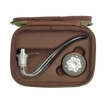
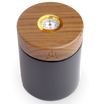
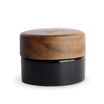
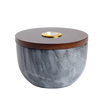
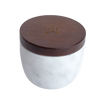
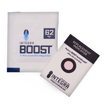


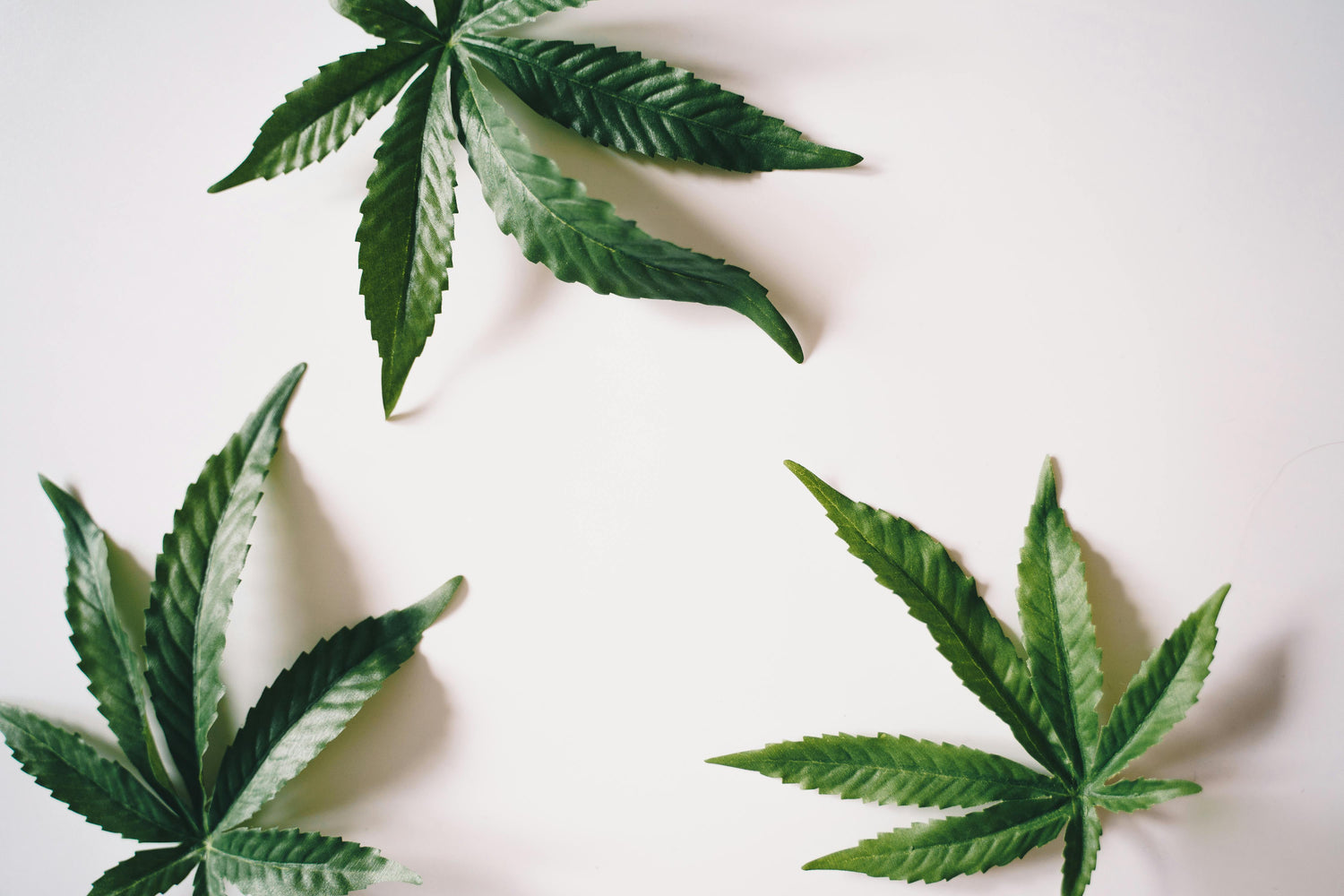
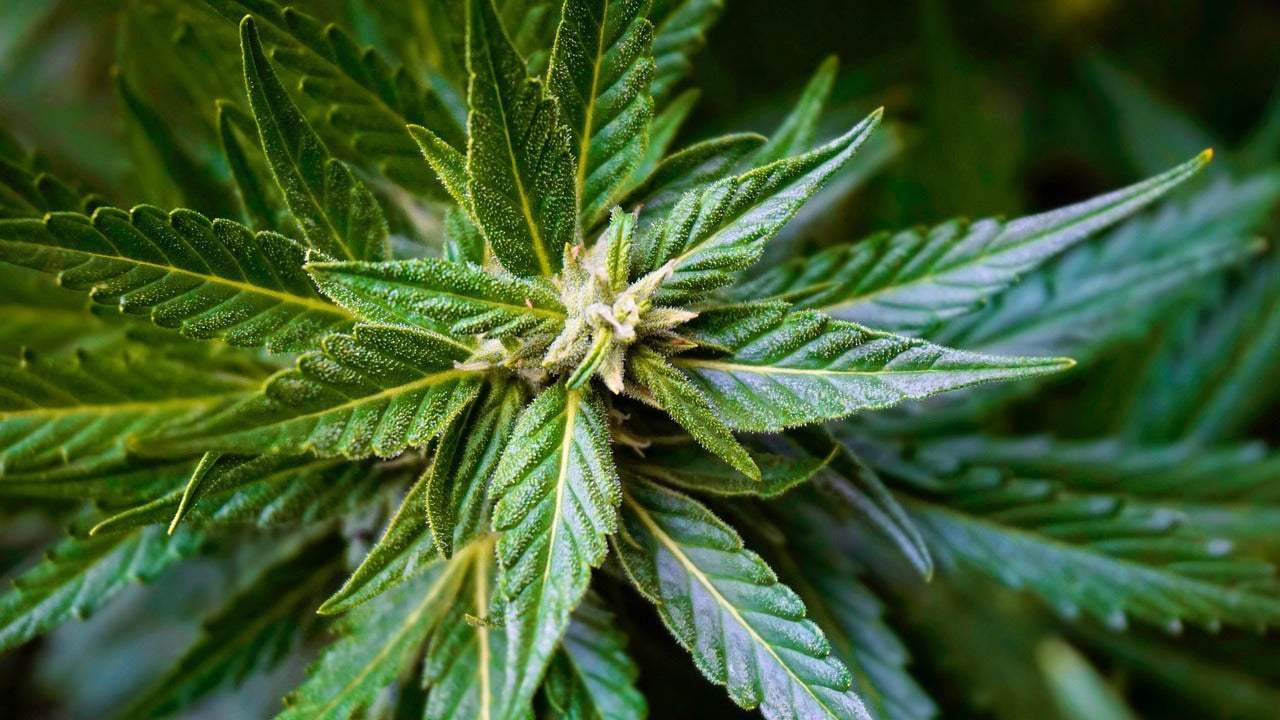
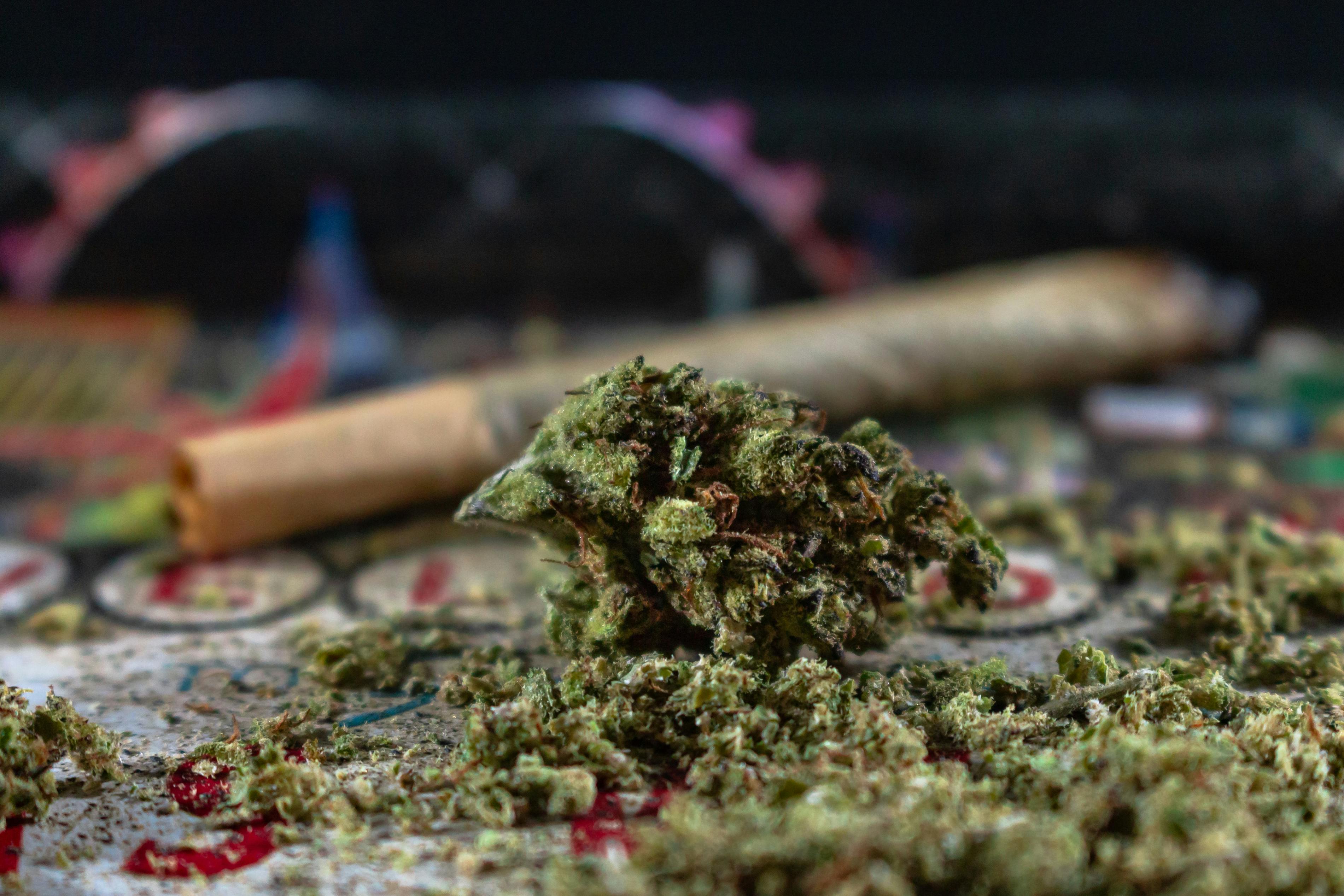


Leave a comment
All comments are moderated before being published.
This site is protected by hCaptcha and the hCaptcha Privacy Policy and Terms of Service apply.